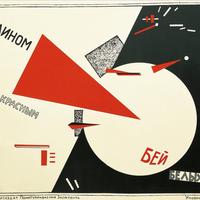77.
77. WAS IST EINE VERBFORM?
77. WHAT IS A VERB SPECIES?
77. QU'EST-CE QU'UNE FORME VERBALE ?
77. WAT IS EEN WERKWOORDSVORM?
77. FIIL FORMU NEDIR?
ЧТО ТАКОЕ ВИД ГЛАГОЛА?
WHAT IS A VERB TYPE?
77.
77.
ЧТО ТАКОЕ ВИД ГЛАГОЛА?
|||verb
WHAT IS THE VERBS TYPE?
CHE COS'È UN TIPO DI VERBO?
O QUE É UM TIPO DE VERBO?
В английском языке 16 времён глагола, во французском 12, в немецком – 6 времён.
|||tenses||||||tenses
In English, 16 verb tenses, in French 12, in German - 6 times.
Ci sono 16 tempi del verbo in inglese, 12 in francese e 6 in tedesco.
O inglês tem 16 tempos verbais, o francês tem 12 e o alemão tem 6 tempos.
А в русском только три времени глагола: настоящее, будущее и прошедшее.
And in Russian there are only three tenses of the verb: the present, the future and the past.
Нет никаких «продолженных» или «совершенных» времён.
|any|continuous||perfect tenses|
There are no 'continuous' or 'perfect' tenses.
Non ci sono tempi "continuati" o "perfetti".
Não há tempos "contínuos" ou "perfeitos".
Но зато в русском языке есть два вида глаголов: несовершенный и совершенный вид.
|||||||aspect||imperfect aspect||perfective aspect|
However, in the Russian language, there are two types of verbs: imperfective and perfective.
Ma poi in russo ci sono due tipi di verbi: imperfetto e perfetto.
Mas, por outro lado, em russo existem dois tipos de verbos: uma forma imperfeita e uma forma perfeita.
Поэтому вы можете видеть в словарях сразу два русских глагола, которые соответствуют одному английскому или французскому, например: делать- сделать(to do), писать- написать(to write), читать- прочитать(to read), находить-найти(to find), слушать- послушать(to listen), учить- выучить(to learn).
therefore|||||dictionaries|immediately|||||correspond to|one|English||French|||||||||write||read||read|find|||||||listen||||
Therefore, you can see two Russian verbs in the dictionaries that correspond to one English or French verb, for example: делать- сделать (to do), писать- написать (to write), читать- прочитать (to read), находить-найти (to find), слушать- послушать (to listen), учить- выучить (to learn).
Portanto, você pode ver nos dicionários dois verbos russos de uma só vez que correspondem a um inglês ou francês, por exemplo: do-do (fazer), escrever-escrever (escrever), ler-ler (ler), encontrar-encontrar (encontrar), ouvir - ouvir (ouvir), ensinar - aprender (aprender).
Первый глагол несовершенного вида, второй глагол совершенного вида.
||imperfective||||perfective|
The first verb is of imperfective aspect, the second verb is of perfective aspect.
Il primo è un verbo imperfetto, il secondo è un verbo perfetto.
O primeiro verbo é imperfectivo, o segundo verbo é perfectivo.
Глагол несовершенного вида показывает действие как процесс, он имеет три времени - настоящее, прошедшее и будущее:
|||shows|action|||||||present|past||
The imperfective verb shows the action as a process, it has three tenses - present, past, and future:
O verbo imperfectivo mostra a ação como um processo, possui três tempos - presente, passado e futuro:
Я читаю книгу.
I am reading a book.
Вчера я весь день читал книгу.
||whole|||
Yesterday I read a book all day.
Eu li um livro o dia todo ontem.
Завтра я буду читать твою книгу.
tomorrow||||your|
Tomorrow I will read your book.
Глагол совершенного времени показывает результат действия, он имеет только два времени - прошедшее и будущее, например:
The verb of the perfect tense shows the result of the action, it has only two tense - past and future, for example:
Я уже прочитал эту книгу.
I have read this book already.
Завтра я прочитаю еще одну книгу.
||read|||
Tomorrow I will read another book.
У глаголов совершенного вида нет настоящего времени, потому что, если действие продолжается, то для русских это еще процесс, а не результат.
|||aspect|not|present||||||continues|||||||||
Perfective verbs do not have a present tense because if the action is ongoing, for Russians it is still a process, not a result.
Os verbos perfectivos não têm tempo presente, porque se a ação continuar, para os russos isso ainda é um processo, não um resultado.
Поэтому русские с трудом понимают «совершённое настоящее время» (the Present Perfect) в английском языке – это для них нелогично.
|Russians||difficulty||perfect aspect|||||perfect tense|||||||illogical
Therefore, Russians have difficulty understanding the 'present perfect' in English – it seems illogical to them.
Portanto, os russos têm dificuldade em entender o Present Perfect em inglês - isso é ilógico para eles.
А теперь послушайте еще примеры с глаголами несовершенного и совершенного времени:
||||||verbs||||
Now listen to more examples with imperfective and perfective verbs:
Мы любим слушать музыку.
We love listening to music.
Мы послушали музыку, а потом пошли гулять.
|listened to||||went|walk
We listened to music, and then went for a walk.
Ouvimos música e depois fomos passear.
Я читаю каждый день.
I read every day.
За неделю я прочитал 4 книги.
in|||read|
For a week I read 4 books.
Li 4 livros em uma semana.
На следующей неделе я прочитаю еще две книги.
Next week I will read two more books.
Она пишет письма другу каждый день.
She writes letters to a friend every day.
Вчера она написала два письма- другу и подруге.
||wrote|||||female friend
Yesterday she wrote two letters to a friend and girlfriend.
Ontem ela escreveu duas cartas para um amigo e uma amiga.
Каждый день я учу новые русские слова.
|||learn|||
Every day I learn new Russian words.
Todos os dias aprendo novas palavras russas.
Вчера я выучил 15 русских слов.
||learned||
Yesterday I learned 15 Russian words.
Я думаю, что завтра я выучу 20 новых русских слов.
|||||will learn|||
I think that tomorrow I will learn 20 new Russian words.
(written and read by Evgueny40, 2015)
(written and read by Evgueny40, 2015)

